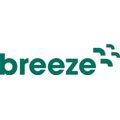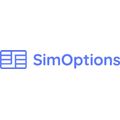Itinérance de données facile sans extras cachés. Les clients Breeze eSIM peuvent rester connectés dans plus de 190 pays grâce à une connectivité de données compatible 5G. Pas de cartes SIM en plastique compliquées à changer et pas de numéro de téléphone changeant, scannez simplement votre code QR et installez votre forfait d'itinérance de données pour une connectivité instantanée.

Itinérance de données facile sans extras cachés. Les clients Breeze eSIM peuvent rester connectés dans plus de 190 pays grâce à une connectivité de données compatible 5G. Pas de cartes SIM en plastique compliquées à changer et pas de numéro de téléphone changeant, scannez simplement votre code QR et installez votre forfait d'itinérance de données pour une connectivité instantanée.
Code Promo
Forfaits de données eSIM Breeze pour la Bosnie-Herzégovine
Questions fréquemment posées
Breeze propose-t-il une eSIM à données illimitées pour la Bosnie-Herzégovine ?
Breeze ne propose pas d’eSIM à données illimitées pour Bosnia and Herzegovina. Tous les plans disponibles de Breeze pour le pays ont des plafonds de données fixes, à savoir 100 GB, 50 GB et 20 GB, chacun ayant une validité de 30 jours.
Les voyageurs qui ont besoin d'un plan à données fixes peuvent, par exemple, choisir l’option 100 GB de Breeze, tarifée à $129.50 USD pour 30 jours, ou l’option 50 GB à $69.00 USD pour 30 jours. Ces plans à données fixes peuvent être plus rentables pour la plupart des utilisateurs, sauf si un voyageur nécessite un volume de données extrêmement élevé qui serait autrement mieux pris en charge par un plan illimité.
Breeze propose-t-il une eSIM pour la Bosnie-Herzégovine avec numéro de téléphone et SMS ?
Breeze ne propose pas une eSIM Bosnia and Herzegovina avec un numéro de téléphone ou de service SMS. Seuls les plans eSIM uniquement de données sont disponibles pour les voyageurs en Bosnia and Herzegovina. Les voyageurs peuvent toujours utiliser les applications VoIP populaires telles que WhatsApp, Telegram et iMessage sur la connexion de données pour les appels et l’envoi de messages, mais ces services ne nécessitent pas de numéro local ni de capacité SMS.
Combien de forfaits de données Breeze propose-t-il pour la Bosnie-Herzégovine ?
Breeze propose 15 forfaits à usage unique par pays et 30 forfaits multi‑pays pour Bosnie‑Herzégovine, couvrant une gamme de prix de 6 $ à 400 $ et un plafond de données variant de 1 Go à 100 Go sur des périodes de validité de 1 à 30 jours. Les forfaits sont divisés en options de plafond de données journalières, qui accordent une quantité de données prédéfinie chaque jour jusqu'à l'expiration du forfait, et en options de plafond de données fixes, qui attribuent une allocation totale de données pour toute la période de validité.
Résumé avec Gen AI. Dernière mise à jour:




